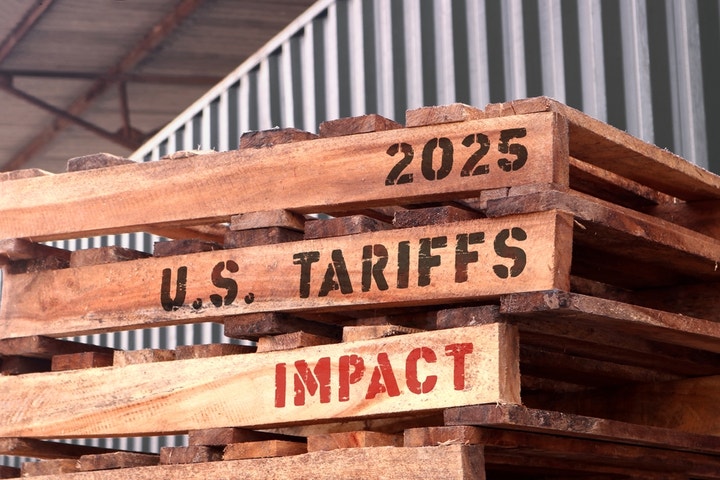Benzinga and Yahoo Finance LLC may earn commission or revenue on some items through the links below.
Inflationary pressures continue to mount, reemerging as the top concern among economists and market watchers, who place the blame squarely on President Donald Trump’s trade and tariff policies.
On Tuesday, The Kobeissi Letter warned in a post on X that “Inflation risks are rising,” noting that “72% of CPI components are now surging faster than the Fed’s 2% target,” which it said was the highest share seen in three years.
Trending: If there was a new fund backed by Jeff Bezos offering a 7-9% target yield with monthly dividends would you invest in it?
The figure also marks a significant jump from just a year ago, when 55% of CPI components were surging ahead of the Fed’s target rate, and the pre-pandemic average of 57% in 2018 and 2019, according to data from the Chief Economist at Apollo Global Management.
“Apollo also claims that goods inflation is climbing again due to tariffs,” the post said, before asking, “Are we experiencing a resurgence of inflation?”
See Also: An EA Co-Founder Shapes This VC Backed Marketplace—Now You Can Invest in Gaming’s Next Big Platform
This surge in inflation follows the Federal Reserve’s 25-basis-point interest rate cut last week, to a target range of 4.00% to 4.25% from 4.25% to 4.50%. Analysts anticipate further rate cuts in October and December, “with a 50bp cut possible if the labor market weakens more than we expect,” according to economist David Mericle of Goldman Sachs.
These inflationary pressures arise amid rising unemployment, putting the Federal Reserve in a difficult position, which leading economists, such as Justin Wolfers of the University of Michigan, attribute to Trump’s tariffs.
Last week, Wolfers said that “stagflation is in the room,” citing Fed Chair Jerome Powell’s statements that unemployment continues to increase while inflation remains elevated.
Story Continues
